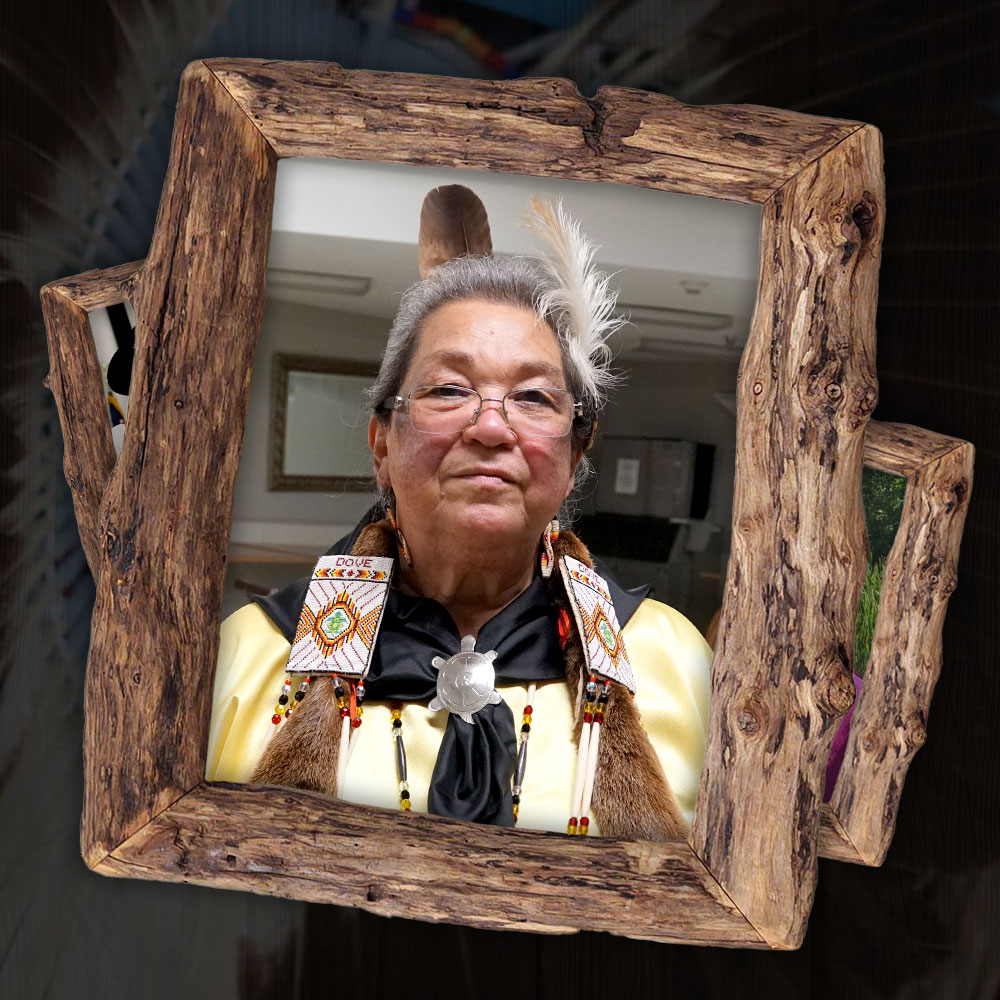
MorningDove Verret Hopkins
Bayou Blue, Louisiana
United Houma Nation
“Well, like I said, as a young girl, not that good. It was good up until my dad passed away because my dad trapped fished and hunted for a living. So we actually lived by the four seasons, like most tribal people did. I was hardly ever, ever with white people until I got like until my early early teens like 13. We was sent to school but not often because see we didn’t have to go to school and not being able to speak English hardly just a few words, that was hard. I think because now that I got older, I have a little different, kind of a different understanding. Since we was off shore almost 9 months out of the year, when we come inland to our house that was inland from the camp, we didn’t know too much of nothing. When it came to school we didn’t know much of nothing, you know. So the teacher, I imagine had already taught these other Indian kids x amount of things lets say, and here we are coming in once in a while with hardly knowing anything, so the patient wasn’t there that needed to be with us.”
They didn’t want us to speak our language, so I can remember not knowing how to say water, how to ask to go to the bathroom. I didn’t know those words, because I was raised only speaking our way. Yeah it was rough, they would hit you with rulers, “You have to learn English, you have to get civilized, you have to learn English,” they thought was not civilized, it was not too good. My dad passed away at 39 years old and we had ten kids. Everybody that could go to work, went to work and I remember my mom crying saying “you’re too young, you can’t leave the house you’re too young.” I left anyway and I waitressed, I had a good boss though, I waitressed for these people for nineteen years. I memorized the menu, I didn’t even know how to read it, I actually memorized it. I had a girlfriend that helped me that was working there and she helped me memorize it. I knew how much things were just by them saying what they wanted. So, that went on for quite a while until I learned. I more or less self educated myself through the years. But it wasn’t easy because they still had people calling you “Squa” “swamp N..”, I hate to use that word it’s the truth, that’s the way it was, “Blue”, you were less than them. I had a good boss because if ever he’d catch them, he would really get them. He’d say “if ever you use that word with that young girl, you never gonna come in this building again.” He was a very good boss, him and his wife. Then through the years, like I said you self educate yourself and you learn how to take the blows.
I still wouldn’t trade it, all of the stuff that wasn’t so good is what makes you are who you are. You teach your kids, I never did hold back on my kids, I told my kids how I was raised and what went on and what didn’t. I told them a lot of it, and I always told them “this is who y’all are, you can be who you are.” My son that’s in there right now, when he went to school, they gave me so much trouble because they wanted to cut his hair. I stood my ground and said “no, you’re not gonna do that unless he wants it done.” They said well “we gonna kick him out of school, he can not come to school with hair like that.” And he used to always have it looking nice, I always made sure. And I used to tell them you’re not going to cut his hair, we won, we won that battle. He still kept his long hair. It’s just different things that you go through and you don’t want your kids to go through it. I’ve always taught them, if you have to take a few little blows go ahead and take it. Lucky for us, a lot of his friends and the friends of my daughters, they loved them being Indians. Time changed, like my daddy said when I was very young. He said “one day those people gonna be who you are today, they gonna want to know what makes us tick, they gonna want to know what to use, what herbs to use.” It took a long time, but, you know, what, he was right. I have so many people come ask me “how you do this or how you do that” tell me different things. “How do you know where you going if you don’t know where you come from” and “why we dance? We dance because we can nowadays.”
Listen


